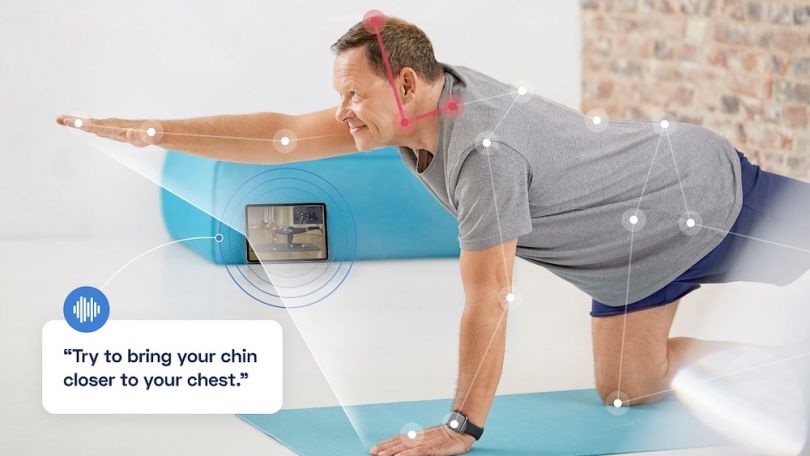
Kaia Health, a Brooklyn-based digital healthcare startup that focuses on treating chronic conditions, announced Wednesday it closed on a $75 million Series C. The round was led by an unnamed growth equity fund, with support from existing investors like Optum Ventures, Symphony Ventures and 3VC.
Founded in 2016, Kaia Health helps treat patients with chronic obstructive pulmonary disease (COPD, which affects the lungs and breathing) and various musculoskeletal disorders (injuries that affect one’s nerves, joints, muscles and spinal discs). According to the company, one in two Americans are affected by a musculoskeletal condition, affecting about 25 percent of the U.S. workforce.
Kaia Health goes about treating these conditions with evidence-based physical, educational and psychological exercises patients can access at home using a smartphone or tablet. By working with medical experts and using machine learning, the platform aims to deliver virtual, individualized care that can easily be integrated into a patient’s routine to treat their pain and discomfort.
As can be expected from its digital nature, Kaia Health has been getting more attention in the last year or so. In fact, the company raised another round of funding — a $26 million Series B — in June. At the time, the COVID-19 pandemic was still a fairly new disruption in our lives, and we didn’t quite understand just how much impact it would have on virtually everything, including the treatment of chronic conditions.
“Pre-COVID, around 20 percent of health plans and employers were interested in offering digital therapy solutions to their members. Now it’s 100 percent,” Kaia Health’s founder, president and CEO Konstantin Mehl told Built In. “A big part of the population has chronic diseases, but the access to chronic disease therapies is, in general, not very good. During COVID, it was very bad. Chronic disease treatments were considered elective treatments during the pandemic, so it was pretty hard to access those.”
This meant folks with chronic diseases were flocking to platforms like Kaia Health, which could offer them the treatment they needed from the comfort and safety of their homes.
As a result, the company says the accelerated demand for its digital musculoskeletal treatment alone grew the business by 600 percent in 2020. All told, the platform treats 60 million people globally, making Kaia Health the biggest player “by far” in the digital musculoskeletal space, according to the company. It also claims its virtual physical therapy is the only technology of its kind in the chronic disease management market to provide real-time exercise feedback that has been validated for its accuracy.
Looking ahead, Mehl predicts many aspects of this newly digitized healthcare space will stick around even after the pandemic, mainly due to its convenience. After all, “convenience,” he says, “is the highest priority” in any industry — everyone wants to “optimize the time and minimize the effort.” However, he foresees it becoming more of a hybrid model, where patients deal with more manageable things at home and get in-person treatment for everything else.
In order to stay relevant in this new normal, Mehl says digital health companies have to get better about integrating with existing medical providers.
“People will go back to the offline system, so it has to be integrated with what is happening in the digital world,” Mehl said. “We don’t see too many companies doing a lot of work there.”
Kaia Health, on the other hand, recently unveiled its Gateway and Premium Partners model, which allows patients to smoothly oscillate between their in-person visits and any treatments they do via telehealth. The development of this tool was based on a randomized controlled trial published last year — apparently the largest of its kind on the digital therapeutics industry — which showed that combining digital therapy, personalized health coaching and collaborating with medical providers achieved better outcomes than conventional care, thus validating Kaia Health’s approach.
Now, with this fresh funding in its pocket, Mehl says Kaia Health is just getting started. The company plans to use the funding to further grow its team and accelerate product and partnership development. The money will also be used to expand its global reach. The company has its eyes set on growing in Europe and potentially breaking into the Canadian and Asian markets, Mehl said.
“It takes a while to get the economic outcomes and the medical clinical outcomes you need to get started in this market. Now that we have that, we can really start to grow,” Mehl said. “We have a very pure and positive impact on people’s lives. And to have that at an even bigger scale than today is very exciting.”



